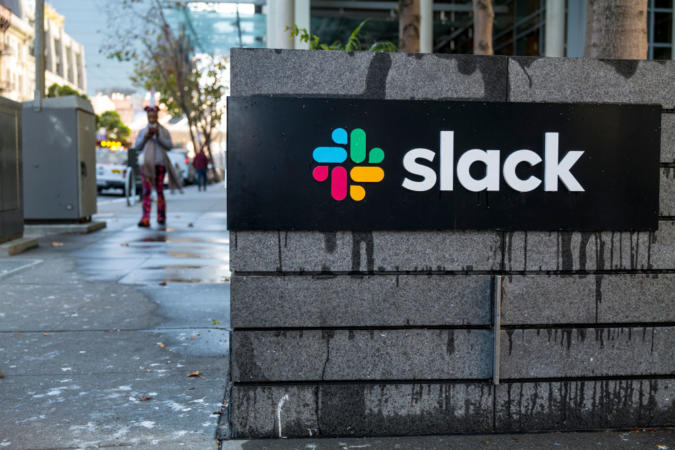If there is one thing that we’ve learned in this past year, it’s that Black employees will not continue working at companies that don’t value them.
Slack is learning this the hard way after recently sharing some of its diversity insights in an annual report. The company has 2,527 global employees, 516 of which were hired last year alone. Only 4.5 percent of Slack’s employees are Black, while 53.1 percent are white and 28.3 percent are Asian. The company said in the report that it has seen an “overall decline in underrepresented minorities,” which isn’t good since Slack continues to expand its team year over year. This report ultimately shows that Slack is lacking severely with its diversity and inclusion efforts, despite executives saying they want to implement change.
“While we know we haven’t—and won’t—always get it right on the first try, we’re committed to listening to our employees, meeting them where they are with tools, resources and support that are most resonant for them, and using every opportunity to create a more just, equitable and diverse workplace,” Slack’s Chief People Officer Nadia Rawlinson said in the report.
Slack — first released in 2013 — is a business communication platform developed by Slack Technologies. The company has raised roughly $1.4 billion in venture capital over 13 funding rounds, so it’s safe to say Slack is financially comfortable enough to invest in improving its diversity. The company shifted to a distributed working model in March 2020 because of the pandemic, but it’s hoping to keep this up to improve its plans to attract and hire more underrepresented talent.
To take the disparities even further, 60.6 percent of managers at Slack are white, 22.5 percent are Asian and only 5 percent are Black. The company increased the amount of white managers it had by 3 percent compared to 2019, while there has been a small decrease in the amount of Asian and Black managers. Slack also shared that 68.9 percent of its global leadership roles are held by white employees.
Slack admitted in the report that it doesn’t quite understand why its losing its minority employees at an alarming rate, but it’s working to provide resources and support to change that. One theory the company shared is the high demand for tech talent right now across the industry, especially minority tech employees. One of the main steps Slack is taking to address its challenges is partnering with diversity consulting leader Paradigm. The two are working together to further analyze Slack’s diversity data and exit interviews in order to create focus groups with past and current employees to better understand people’s experiences working for the company.
In the report, Slack shared a list of other efforts and partnerships that it’s investing in to address its diversity issues. The company launched a suite of business development tools and resources exclusively for its Black employees, and it said that one third of Black employees have participated in those offerings. Slack said it will also offer dedicated mental health support. Another actionable way Slack is addressing diversity is by partnering with Raheem, a national nonprofit working to end police brutality against Black people, to fund a new engineering role on the nonprofit’s team. More than 250 Slack employees have also volunteered with Raheem to offer technical support and help pull police brutality data together.
“I never wanted to be a leader. I was just happy to do the work,” said Curtis Allen, a Slack software engineer, in the report. “But now, working with a professional coach, it’s completely widened my horizons. Before it felt like ‘climbing the ladder’ was for other people, but now I see my skills can have a greater impact on my team if I focus on becoming a better leader.”
Like many companies, Slack has designated Juneteenth as a global paid Volunteer Time Off day as of last year, but its also giving employees 80 hours of paid emergency time off in addition to regular paid time off.
Here are some other statistics that Slack shared in the report:
- 44.5 percent of employees are women.
- 7.2 percent of employees are Hispanic.
- 6.1 percent of Slack’s workforce identify as LGBTQ.
- 1.5 percent of employees identify as having a disability.
- 1.6 percent of employees identify as veterans.
While it seems like Slack is heading in the right direction to attract and retain more Black employees, we hope its next diversity report will better reflect their efforts.
Check out the report for more on what employees have to say about how Slack is addressing its diversity challenges.


